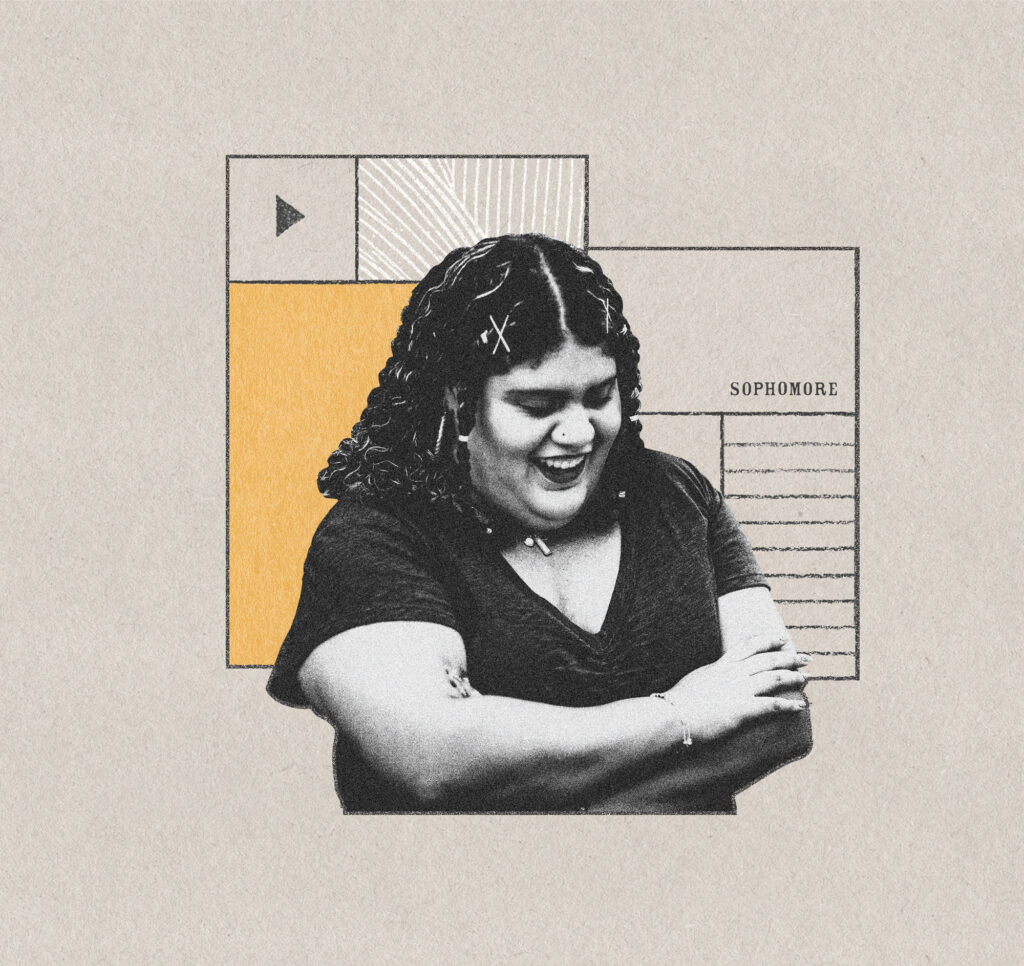Kayra Ramirez, Sophomore (Metro), Biology

(Illustration: Matthew Hancock)
Kayra Ramirez, a Peruvian and Puerto Rican first-generation student, wants to become an orthopedic surgeon. She’s also interested in sports medicine.
FDU Magazine: What does it mean to you to be a first-generation student?
Kayra Ramirez: Being a first-generation student is a blessing and a curse at the same time. You’re dealing with a lot of pressure — classes, social life, career development, internships, work, etc.
For me, not only am I the first to attend college, but I’m also the first to live on campus. It was overwhelming at first — fun academically and socially — but a little hard on the family.
My mom is Peruvian and my dad is Puerto Rican. They came to the United States to live a new life, to find new experiences. My sister and I are four years apart. She looks up to me, but she’s doing her thing, I’m doing mine. I tell her, “I’m just a call away.”
FDU Magazine: What was it like navigating the admissions and financial-aid process?
KR: Thankfully, my guidance counselor guided me through the Common App, and I had my application fee waived.
The financial-aid process was terrifying. My mom and I, we tried the best we could. As soon as I saw that FDU offered the Educational Opportunity Fund (EOF) program, I applied.
I did get some financial aid including the FDU grant, a Pell Grant and the New Jersey EOF grant. And I also got into the University Honors program, which offers a lot of opportunities and events.
FDU Magazine: You’re a member of the Louis Stokes Alliance for Minority Participation research program. How has that been helpful to you?
KR: Marion McClary [professor of biological sciences and chair, department of biological sciences] invited me to apply to the program, and I got accepted. I love to do research, and this program is really going to help me. I applied to an animal research workshop.
FDU Magazine: Do you actively seek out advice and support from your professors?
KR: I seek out help not only on academics, but also on a personal note. For example, I might ask, “How was your experience when you were in college?” Talk to your professors about how you’re doing and always ask for tutoring.
FDU Magazine: What recommendations do you have for other first-generation college students?
KR: Do your research. Talk to your guidance counselors and high-school teachers. And talk to your admissions counselor. Ask for a tour of the campus so you can learn more about the university, and they can welcome you home!
It’s important for first-generation students to attend college because, besides receiving an education, they learn how to be an adult and gain their independence and freedom.